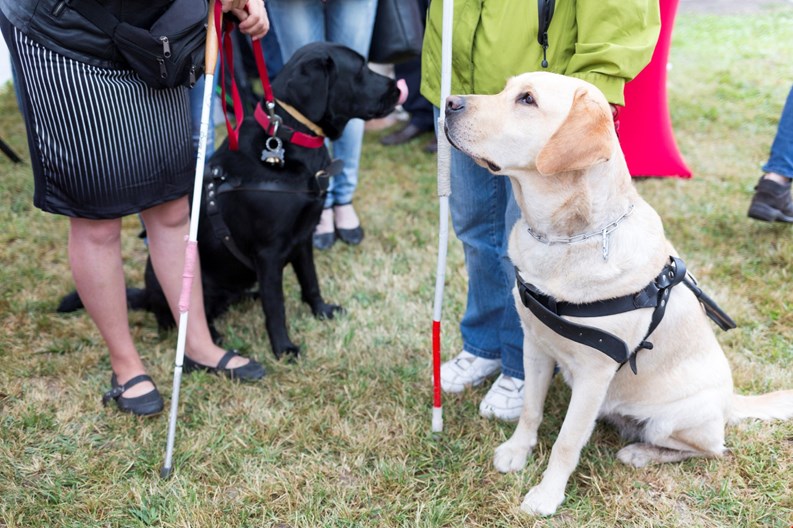There are few people as passionate as pet owners, and for evidence look no further than condo and co-op communities. The many health and aesthetic concerns that go with pets compel many boards to favor a ban on pets altogether. However, if the board succeeds in implementing a no-pet rule, don’t expect everyone to follow it. Across the country, many residents are exploiting well-intentioned laws designed to protect those with special needs in order to keep their pets.
Through the Americans with Disabilities Act, federal law provides for exceptions to pet bans in the case of those who can demonstrate a need for a service dog and what’s called an “emotional support animal.” According to the Judge Bazelon Center for Mental Health Law, co-op and condo boards, in addition to landlords, must make reasonable accommodation for any and all disabled individuals.
“Very few laws have been abused as far as the reasonable accommodation statute,” says Attorney Adam Leitman Bailey, founding partner of the law firm of Adam Leitman Bailey, P.C. in New York City. “I would say most of the service dogs requested do not come from people who are disabled or people who have a disability that require a service dog,” says Bailey.
The idea that most service animals are not actual service animals is stunning, but it’s difficult to prove with data. The federal government does not keep track of all service animals, and there are several organizations that have set up their own individual registrations. “Between the online websites that sell certificates, tags, vests, etc., and the medical providers that advertise to write letters for a one-time fee and after a one-time consult by phone or taking an online test where they provide the answers, the abuse is difficult to control.”
There are a lot of websites that will provide people with badges and vests for their animals indicating that they are service animals for a price (around $70), but those registries are all independent and unregulated. There are no official registries for service animals. The only documentation that indicates if a service animal is legitimate or not is a doctor’s note.
“We do not accept the tags and certificates or the letters that we can establish are from registries—like the National Service Animal Registry—or the medical providers that advertise,” says JoAnn Nesta Burnett, a senior attorney with the law firm of Becker & Poliakoff in Fort Lauderdale, Florida. There is no official registry for either emotional support animals or service animals.
Florida, in an attempt to combat the issue, passed a law in June of 2015 that makes it a misdemeanor to pass off an unqualified pet as a service animal. The law states that offenders can face up to 60 days in jail and a $500 fine. Catching perpetrators is easier said than done since the only questions that can be asked are, “Is this a service animal and if so what is it trained to do?” It also makes it a second-degree misdemeanor for business owners to prevent a disabled person from bringing their service animal inside. Other states are currently looking at similar laws.
According to the Bazelon Center, the Fair Housing Act states that so long as the person has a doctor’s note stating that they need the service dog, they must be accommodated. They do not need to disclose what disability they have or their medical history.
“In a purely residential community, with no short-term stays, the association can request reliable documentation from the requesting party’s medical provider (which may include physicians, social workers, therapists, etc.), in the form of a medical statement, that explains that the requesting party suffers from a physical or mental impairment that substantially impairs at least one major life activity and an explanation of how the animal ameliorates the effects of the disability,” says Burnett. “The association may also ask for the author’s credentials/license number, and is not entitled to medical records or to seek information beyond this. The association is not entitled to a specific diagnosis and should not ask for one. Dates of treatment should likewise not be requested.”
Register for a Fee
Of course, just like with the websites promising to “officially” register service animals for a one-time fee, there are similar websites that will provide people with a doctor’s note for a service animal after a fee and a very simple talk with a social worker or psychiatrist.
In 2014, the New Yorker ran an article in which a writer sought out one of these services and was able to get a doctor’s note for a snake named Augustus which she proceeded to take across New York City. The process she went through consisted of a short conversation with a therapist over the phone that consisted of only a few easy questions and ended with said doctor’s note arriving in an email the very next day.
As mentioned earlier there are limits to what you can and cannot ask. Residents do not have to provide the building with their medical records or what their specific disability is, but that doesn’t mean that the building is powerless in fighting fake service animal requests.
“Once they open it up and claim a disability as a result of their dog, in my book it’s no holds barred. You have a right to investigate to see if the service dog is necessary or is it a ploy to get a dog in a building that doesn’t allow pets. So at this point we are doing a fair due diligence investigation to determine if the service dog is actually necessary. If it’s close we will let the dog in, if they got a registration in the mail or aren’t willing to give us a doctor’s note then we have enough evidence at the time so we can deny entry and win the case if they sue,” says Bailey.
During this process, more often than not, if an irregularity is found and it turns out the animal may not be a legitimate service animal the person may well drop the request.
“I run searches on all the medical providers and the requesting parties to see what I can find. I have made familial connections and found things on Facebook that contradict what is said in the medical statement. In those cases, I usually ask for clarification and many times the request is dropped. But we are really limited,” notes Burnett.
None of this is to say that there are not legitimate cases of people needing service animals to help them with disabilities ranging from blindness to Post-Traumatic Stress Disorder, or PTSD. Often those with legitimate disabilities dislike the people who get fake documentation for their animals more than the buildings dealing with the issue themselves. But when it comes down to it, this law, which is designed to help people, is routinely exploited. Unfortunately, there’s only so much anyone can do about it.
John Zurz is a staff writer for The Cooperator.










4 Comments
Leave a Comment